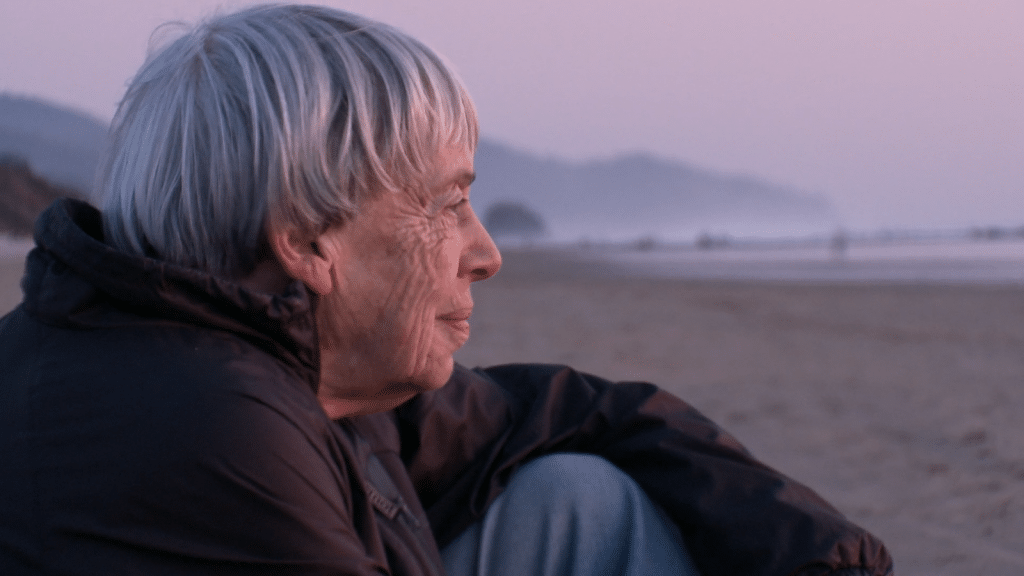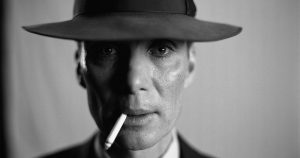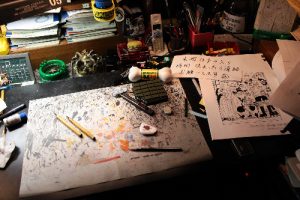We lost Ursula K. Le Guin five years ago, on January 22, 2018.
She was one of the most influential science fiction authors in the history of the English language. She wrote 23 novels (mostly science fiction), alongside sheaves of short stories, poems, children’s books, and essays. She helped pioneer a feminist, radically critical sci-fi.
Her novels have been rereleased continually over the past few decades, to near universal acclaim. Her influence is clear on such major writers today as Neil Gaiman and N. K. Jemison, and literary theorists like Darko Suvin. Her work has been taken up by major best-selling book series and mega-hit movies (usually they don’t even mention her). The first book of the Earthsea series (about a school for wizards) is almost certainly the source of Harry Potter. And Avatar, and now its sequel, are clearly ripped from the pages of The Word for World Is Forest. Why this influence, 40 years after her major novels were penned?
At least part of the answer is this: we haven’t gotten past the problems Le Guin flung herself against. A new age of imperialist slaughter was dawning while she was writing most of her main novels in the 1960s and 1970s. In the years that followed, the ruling class executed its neoliberal smashing of the forces that resisted it, dismantling the powers of the working class and oppressed who rose up across the globe and in the United States. She gives artistic voice to the brutality and decay of capitalist imperialism, to the fate of the forces that opposed them — and to the potential for revolution.
But that world is changing. US imperial violence still reigns. But its decay is clear in the collapse of another failed war, this time in Afghanistan. And neoliberalism, the shared set of policies that help buoy up the masters’ violence, is falling apart. Worldwide, the working class and oppressed are beginning to feel their power again, and to feel it grow. Le Guin left us a task: liquidate the world of Le Guin; make her books relics of a dead past.
Art in an Age of Imperialist Slaughter
Every cultural object is welded together out of the ideas that lie about. Those ideas are forged inside the class and mass clashes of the time of the welding. Le Guin’s works are no different. They are created out of and express the clashing of social forces. The feminist revolution of the 1960s and 1970s and the indigenous struggles of AIM and beyond — all these were the raw materials she worked with, producing books that challenge gender norms, explore the resistance of native peoples against their attackers, and imagine a future beyond capitalism. Her writing is constantly marked by restlessness. Her works are always searching for, but never quite finding, a “third way” to fight for a new world: certainly not through liberal handwringing, and certainly not by fighting for Stalinist, bureaucratic socialism. Anarchism, then? Taoism? These questions are always raised, and the answers are always ambivalent.
But Le Guin’s works bear the mark of an overarching problem above all: the brutality of imperialism. That problem works like a kind of framework, or “meta-structure,” for almost all her major writings. It’s the frame inside which she also explores gender, sexuality, indigenous struggle, suffering, the limits of knowledge, the nature of language, and more. It’s impossible to do justice to the complexity and nuance of her works in one article, but when we look at this guiding frame of hers, it can help us understand some of Le Guin’s power and importance.
It isn’t an accident that she chose this guiding frame. Her first work was appearing in print in an era when Cuban revolutionaries won their struggle in 1959, and when the Algerian masses ejected French armies in 1962. Every one of her early novels, and most of the books of her mature period, were written as US troops were flooding Vietnam for the capitalist geopolitics of slaughter. And it’s hardly surprising that imperialism would occupy her. Le Guin grew up in a house of famed anthropologists. Her mother and father’s life’s work involved cataloging indigenous cultures as they were being destroyed (summed up in her mom’s book, Ishi in Two Worlds).
In her “early” works, from the late 1950s or so up to the early 1970s, Le Guin was forging her style as an author. She weaponized classic, golden-age sci-fi tropes to grapple with her central problem. In Rocannon’s World (1966), an interstellar anthropologist tries to save a planet’s culture from an invading military force. The hero helps destroy the invaders. But he’s broken by the violence in turn; he becomes a burned-out husk in the new world. Who are the invaders, and why did they invade? What should the response be to such imperialism? The book only gestures at these questions. They stay in the margins of a typical hero quest. City of Illusion (also 1966) tackles those same questions in the same golden-age language. But it does it from another side. A planet is overrun by a violent and oppressive bureaucracy, filling the world with the illusions of well-being and peace; the hero must fight that bureaucracy. The ending is just as ambivalent. No answers are given; the main character turns to the Tao Te Ching to see through the bureaucracy’s illusions, but how? What magic or spell would make possible the victory of a sole hero? Or is that another illusion of the masters? She never answers.
By the late 1960s, though, Le Guin develops a style and voice all her own. The problem of imperialism calls forth a new language and new metaphors. The old “shell” of golden-age sci-fi cracks; out of it comes a new kind of social-political and anthropological sci-fi. This “mature” period is announced in two hugely influential works. The first is the complex masterpiece Left Hand of Darkness (1969), an exploration of gender, sexuality, language, and the limits of knowledge. At the core of the story lies an explorer from the Ekumen, a utopian intergalactic civilization that links, develops, and protects the native civilizations of the planets it finds.
Is this a distorted version of the liberal dream of peaceful capitalist expansion? Or a new hope of a kind of Communist International? She grew up in a house of liberals, after all, and her mother was, in her own words, “a 30s liberal.” But that’s also when John Dewey, champion of American liberalism, publicly defended a communist, Trotsky, against the smears of Stalin. Either way, Le Guin’s book inverts the imperialism at the core of Rocannon’s World (and lays the basis for Iain Banks’ Culture series to boot). The problem becomes, how could a genuinely expansive, even universal, culture be created — without imperialist slaughter and cultural decimation? Could it be? It’s a question extended even to the realms of knowledge and language. Can there be a language, and a way of knowing, that don’t destroy what they grasp? Here, too, we find no unambiguous answers. The Ekumen’s agent leads to disaster on the new world and the death of his closest companion.
The other book kicking off the mature period is A Wizard of Earthsea (1968), in what would become the original Earthsea trilogy. Fantasy had, for a long time, trafficked in the images of a largely white Middle Ages and stories of killing monsters. Earthsea, though, was a Bronze Age epic, filled with brown people wielding a magic closer to poetry than anything else. Wizard Sparrowhawk crisscrosses a mystic archipelago as he learns the art of sorcery — a kind of universal language (like the Ekumen’s universal culture) that rescues a being’s singularity, and releases it, rather than destroying it. And lurking in the background of the Earthsea series is a constant tension. The archipelago Earthsea is marked by a usually unspoken struggle between a central monarchy and the strangeness of the islands never quite under control, a tension never resolved — the frame of the whole series.
This main period is filled with some of Le Guin’s most original, iconic novels: the rest of the original Earthsea trilogy (1970 and 1972), The Lathe of Heaven (1971), The Word for World Is Forest (1974), and The Dispossessed (1974), not to mention the short story collection with “The Ones Who Walk Away from Omelas” (1973) — writing that I could hardly do justice to here. The Lathe of Heaven strikes inward: What if colonization is of the psyche too, the unconscious creativity of the mind itself? In The Word for World Is Forest, the problem of imperialism gets one of its most direct expressions: the violent battle of a native population, the peaceful Althsheans, against an invading force, and its incalculable and destructive consequences. The Dispossessed, perhaps, with Left Hand, a masterpiece of complex political and social exploration, offers a kind of political détante. A violent revolution in the past, an anarchist moon, and capitalist planet stand at odds, unstable in their truce. Annares, the anarchist moon, stands in constant danger from its rival; the capitalist planet has a brewing revolution. Shevek, traveler between worlds, seems to represent some resolution or next stage of social evolution, maybe.
This period is capped off by Always Coming Home. It’s an encyclopedia, or an anthropology, of the future, complete with music, archaeological notes, and a narrative of another, utopian, anarchist future and its internal contradictions. Again, no easy answers: the utopia is filled with conflicts, where an ecologically minded, anarchist society is in constant danger of invasion and colonization from its neighbors, a danger always lurking just beneath the text. Is that why the book is a relic of a dead culture, exhumed and dusted off in the future?
In her long final period, from the late 1980s until her death, Le Guin trods old ground, but experiments too. She completes the Earthsea series (Tehanu, 1990; Tales from Earthsea, 2001; The Other Wind, 2001). But if the original Wizard of Earthsea held out some hope of a magic solution to domination, Tehanu gives up magic almost totally. Now, Sparrowhawk has no powers. He flees powerful men on moonless nights, hand in hand with his lover and her child, constantly in danger.
This last period is telling. Le Guin more or less abandoned the long-form, traditional sci-fi novel. This too seems linked to the overarching frame or problem of her earlier work. The problems of imperial destruction, of colonization and dehumanization, the problems of liberation and resistance — these had been problems without answers, seen from different angles. As a result, her body of work is marked by profound ambiguities. A glance across her major works makes this clear: The Lathe of Heaven ends with either liberation or near-psychotic break; the utopian Ekumen wins out at the end of Left Hand of Darkness, but at terrible cost. Always Coming Home features a utopia after its collapse, mined from the ruins of the future. In other words: the set of problems at the heart of Le Guin’s work admitted no real solution in her lifetime; her later work fractured under the pressure of that problem and reality.
Art for the Day before the Revolution
But as a result, Le Guin’s work registers vibrations not just of Cambodian carpet bombing, but of another violent act: the destruction of the global forces of revolt.
She wrote in an epoch of neoliberal counterrevolution. The murder of Black Panthers in COINTELPRO; the widespread destruction of unions; the launch of another, and yet another, and still another imperialist adventure by the US ruling class — and on and on. And her writing registers or expresses this destruction in a telling way. We find a silence at the center of her main works, again and again, matching the social chasm left by the dismantling of the forces of revolt. Her writing constantly returns to the themes of rebellion, even revolution. In a fascinating, powerful form of political writing, for Le Guin, the revolution itself is almost always left off the page. But this is no accident for Le Guin. It’s because the revolution is left off the page that her readers are tasked with facing the question of revolution.
In “The Ones Who Walk Away from Omelas,” the narrator refuses to mention the possibility of a radical social change. But with the horror of Omelas, Le Guin confronts the reader with the silent but constant question of total change. In Left Hand of Darkness and Rocannon’s World, the incorporation of a planet into the utopian Ekumen is left silent. So too the upheavals that built the utopia at the core of Always Coming Home and the anarchist moon Annares in The Dispossessed. This problem that occupied Le Guin — the revolution — finds one of its fullest expressions in a short story set just before the revolution that created the anarchist Annares — “The Day before the Revolution.” It’s no wonder Le Guin said one of her favorite novels was Jose Saramago’s Seeing, a story about a revolution that begins when the majority of a nameless town cast blank votes. The movement never appears in the book; it’s always just out of sight. In all these works, Le Guin inserts a silence under the text that she leaves for us to grapple with.
Le Guin does give the problem — revolution — a more direct expression in The Word for World Is Forest, with all her characteristic ambiguity. The Athsheans are broken by the violence of their revolt. It’s as though, with the collapse of global radical struggle, Le Guin was dramatizing the ethical dilemma of liberalism: yes, we’re constantly told, we should have a better world, but no violence! The brutality exacted on the native population shows that this is a lie. Le Guin never stops problematizing exactly this dilemma. Isn’t it the ruling, oppressive bureaucracy of City of Illusions that has only one rule — thou shalt not kill? Doesn’t that rule justify and protect the rulers’ own violence? And, says her narrator there, doesn’t that rule itself betray one of the deepest repressed desires of the rulers themselves — to kill and plunder?
Compare all this to how another major science fiction series deals with revolution, the original Star Wars trilogy. As in Le Guin’s works, we find there stories about revolt and revolution. But there’s a clear answer. The battle is won by the amazing power of a magical aristocracy. The answer is easy, even pat. Nothing of the kind is found in Le Guin’s work. Again and again, Le Guin gestures toward Taoism in her work (she even has her own translation of the Tao Te Ching), as a kind of mystical answer to the basic problem her works wrestle with. Something similar applies to magic, that mystical force that resolves conflicts and struggles with the speaking of the right word. But she always calls these into question too. Is the Tao a real power or illusion, a force for change or just another dream of hopeless people? Her books ask but don’t answer. Ultimately, the Tao and magic are algebraic. Instead of an answer, they’re an x in an equation. They stand at the spot where an answer to imperialism and class war should be, but isn’t yet. In that spot, Le Guin leaves a blank piece of paper for us instead.
Her works mark a task left unfinished. They were written for the days before a revolution that it’s up to us to make.
Unfinished Task
“We live in capitalism,” said Le Guin in one of her last public appearances. “Its power seems inescapable. So did the divine right of kings. Any human power can be resisted and changed by human beings.”
At the heart of Le Guin’s work, echoing inside it, vibrating it from start to finish, lies the problem of imperialist, capitalist carnage, and of the revolution we need to stop it. In some major part, her importance today lies in how she wrestled with a problem that admitted no solution, refracting it across a kaleidoscope of works.
But history is moving. The working class and oppressed — the ones who flip the burgers and drive the buses, the ones who teach the classes and smelt the steel that cities are built from and then build the cities, the ones who gave us the civil rights movement, the weekend, the Russian Revolution, the right to an abortion, and the feminist revolution — these are the forces that can solve that problem. They were being driven back and disorganized in Le Guin’s time. She left a silence at the core of her work, marking the place of a missing revolution.
But the world is changing. The neoliberalism that helps prop up imperialist carnage is starting to crack. Other terrifying forces gather: more global capitalist war; a ruling class collapsing the ecosphere in the hunt for profits; the rise of the Far Right.
Le Guin leaves us with a task: filling the silence left inside her work, making the revolution. Her books have been waiting for us. They charge us with making them obsolete.










